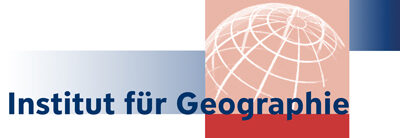2 phd positions in research project: “Open geospatial data at the intersection of digital commoning, digital humanitarianism, and digital capitalism: Transformations and tensions in OpenStreetMap”
The German Research Foundation funded research project “Open geospatial data at the intersection of digital commoning, digital humanitarianism, and digital capitalism: Transformations and tensions in OpenStreetMap” investigates transformations and tensions in the field of open geodata, digital commons and volunteered geographic information. It analyses the growing role of commercial platforms and humanitarian actors in OpenStreetMap (OSM). The research project starts from the premise that there is a tension between the ethos of OSM as a project that builds on local knowledge and practices of digital commoning and the concerns about distanced and data-extractivist practices of institutional actors on the other hand. These concerns are raised in particular by decolonial and feminist voices within the OSM community and raise questions about the power of cartography as well as organisational issues of participation, polyphony and data sovereignty. The research project asks about the changing production and use of geographic knowledge in OSM, the interactions, overlaps and conflicts between the different groups of actors and the changing governance of OSM at the intersection of digital commoning, digital humanism and digital capitalism.
- Case study A focuses on the strategies and policies of the main institutional actors in OSM (commercial actors such as Meta and Microsoft, the newly established Overture Maps Foundation, and the humanitarian OSM team). Of particular interest are the relationships, conflicts and tensions between these institutional actors and key players in the OSM community. This case study is based at the Chair of Cultural Geography and Political Geography at the FAU Erlangen-Nürnberg (with Prof. Glasze).
- Case study B analyses the practical interactions between local communities and institutional actors at the local level. It focuses on the Philippines, a place where local OSM communities are in tense interaction with actors and concepts of digital platform capitalism and the humanitarian sector. This case study is based at the Chair of Digital Geography at MLU Halle-Wittenberg (with Prof. Michel).
Prerequisites:
- Completed Master’s degree in human/cultural/social geography or related fields
- Very good previous academic achievements and degrees
- Excellent verbal communication and academic writing skills (in English, German is a plus!)
- Critical and independent thinking, ability and interest to work independently in academic research
- Interest in the subject areas of the research project
- Proven knowledge of empirical (qualitative and/or quantitative) social science or human geography research methods (e.g. successfully completed methods seminars etc.)
- For position A, experience with the analysis of geodata/skills in the use of GIS and geovisualisation are also an advantage
- For position B, experience in qualitative social research is particularly advantageous.
Your application:
We look forward to receiving your detailed application! Please send the following application documents to Prof. Dr. Georg Glasze, (georg.glasze@fau.de) and Prof. Dr Boris Michel (boris.michel@geo.uni-halle.de) by 30 April 2024 at the latest. Please indicate which position you are applying for (or if you are interested in both positions)
- Detailed curriculum vitae with attachments (e.g. courses, theses/supervision, scholarships if applicable, involvement in academic self-administration/memberships, lectures…) with date and signature
- Cover letter explaining the motivation behind your application for the specific project position
- Certificates: Copies of school leaving certificate, degree certificate plus transcript of records
- Up to three work samples, e.g. Master’s thesis, seminar paper, publication (if available)
- Optional: a letter of recommendation, e.g. from the supervisor(s) of a previous thesis
If you have any questions, please contact Prof. Dr. Georg Glasze, e-mail: georg.glasze@fau.de and/or Prof. Dr. Boris Michel, e-mail: boris.michel@geo.uni-halle.de,

